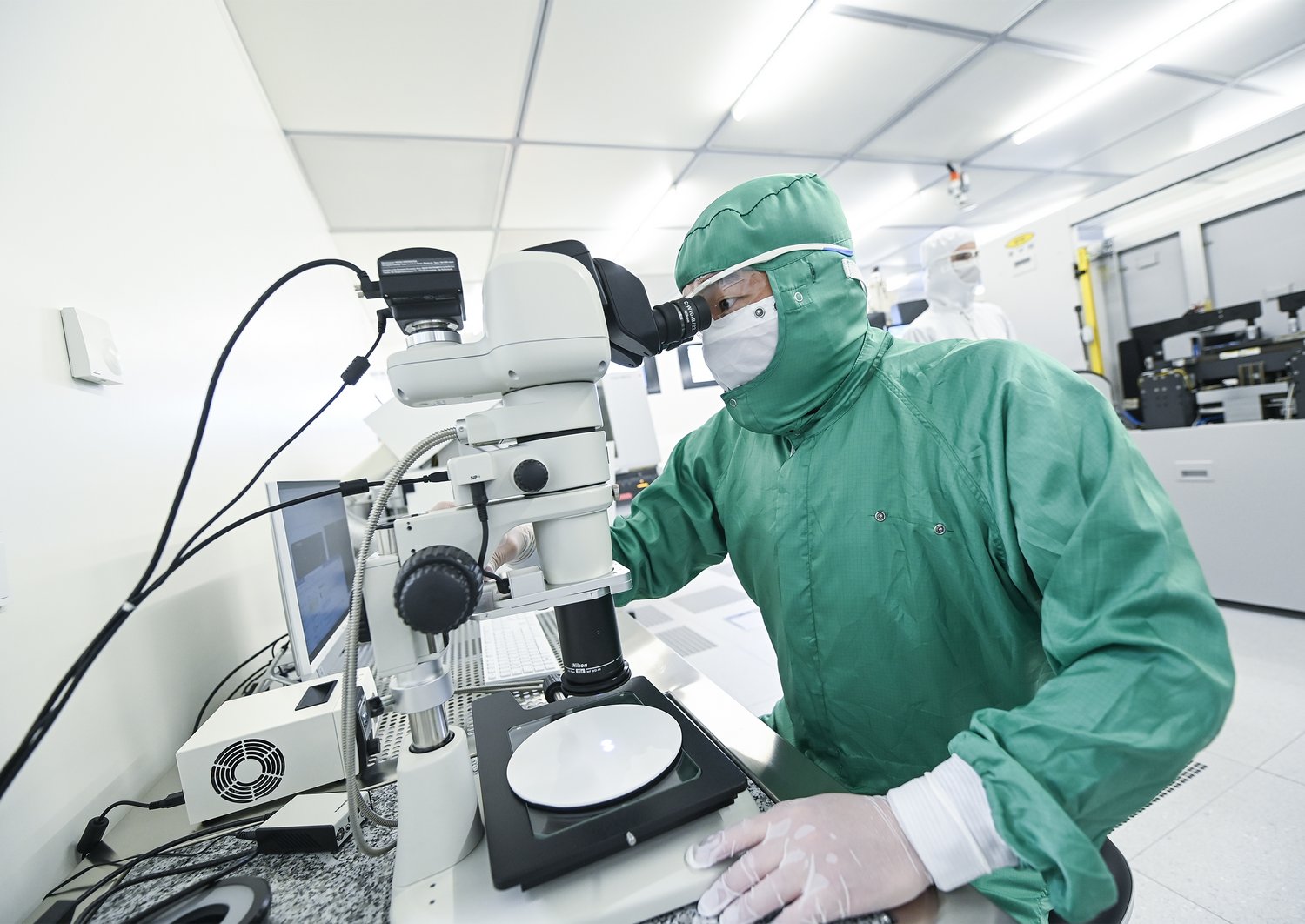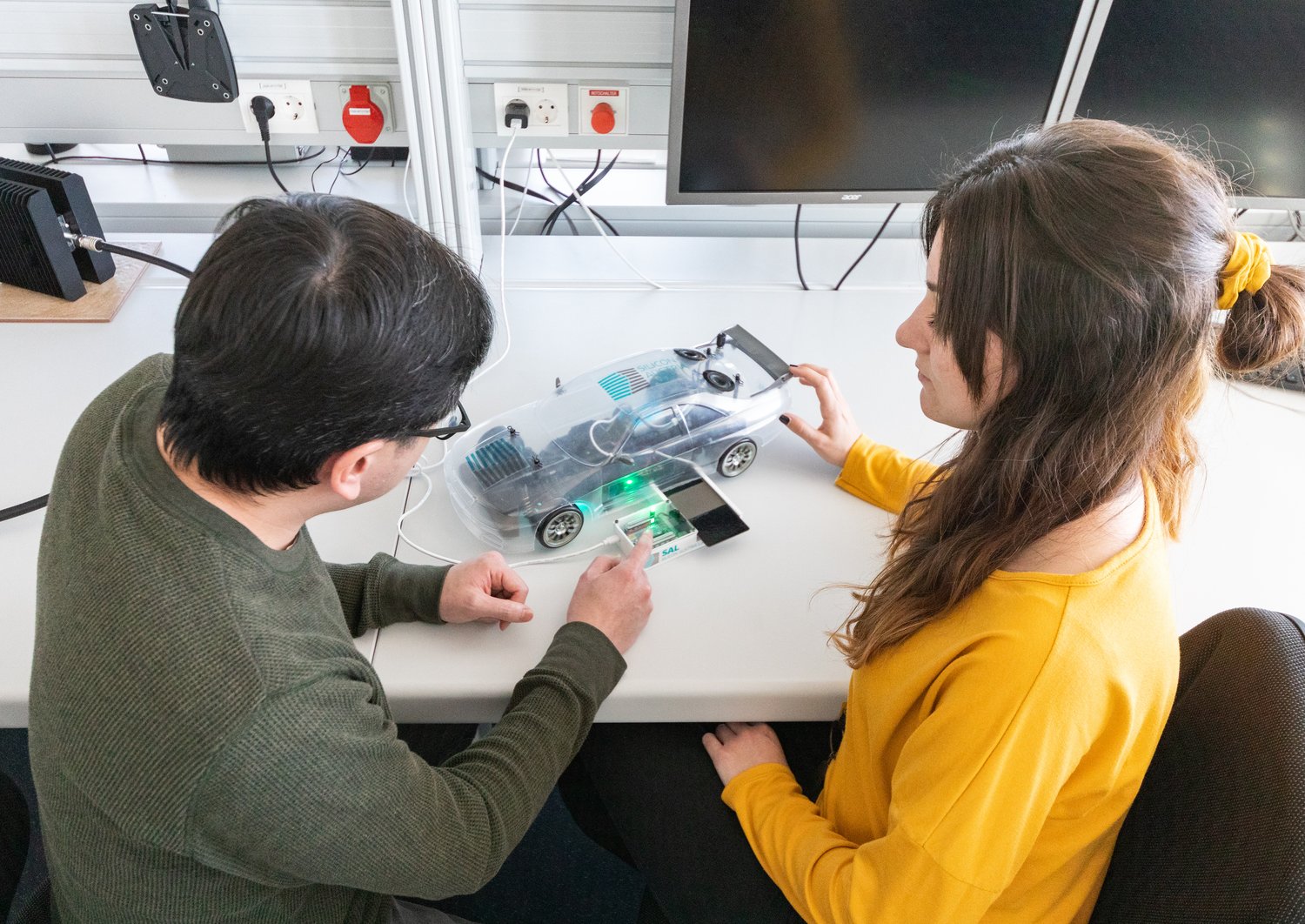Graz/Villach/Linz, June 22, 2022. – Local manufacturing, E-mobility and energy-efficient components in different devices – many developments around sustainable economic activities require innovations regarding electronic-based systems (EBS). To advance these innovations, the Federal Ministry for Climate Action has granted SAL EUR 30 million. This special funding will be used to further develop SAL’s five main research areas, the so-called lighthouses.
“Climate protection needs courage, commitment and the best ideas. We are already familiar with many of the solutions that are paving the way for climate neutrality; however, there are others that we still have to refine. That is why the Federal Ministry for Climate Action has granted SAL EUR 30 million. With this fund, we are investing in a local top research center that focuses on electronic-based systems, supporting the research of technologies for a sustainable industry that can keep up with the international market. We want Austria to be amongst the frontrunners and we want to have a global leader in environmental technology in our country for the future,” states Federal Minister for Climate Action, Leonore Gewessler.
“Both the digital and the green transformation provide local companies with plenty of opportunities for economic growth. At the SAL headquarters in Graz two pioneering labs that underline our top position as a high-tech research site and contribute to climate protection are being established: the new Power Electronics Lab and the Smart Testing Lab”, says Styrian Provincial Minister for Economics, Barbara Eibinger-Miedl.
“SAL is already standing out due to its extensive know-how and the excellent research infrastructure concerning sensor technology. With SAL’s new cleanroom at the High-Tech Campus Villach we will further strengthen our position as a technological hot spot,” explains Carinthian Provincial Minister for Technology and deputy governor, Gaby Schaunig.
“With the new 6G mobile generation, the team at SAL Linz is working on key technologies for future wireless connections. This is opening up completely new opportunities for digitalized industrial production. With SAL, the economy and innovation location Upper Austria has gained an important player on the interface between economy and research,” states Upper Austrian Provincial Minister for Economy and Research, Markus Achleitner.
“Our researchers in Graz, Villach and Linz are tinkering with technological solutions for the future – starting with the new generation of 6G data communication, through to efficient power electronic systems and microsystem technologies. An internationally competitive R&D infrastructure is an important requirement for top research, that we can now accomplish,” knows Gerald Murauer, CEO at SAL.
Electronic-based systems play a key role in climate protection
The research units at SAL are working on future technologies in the areas of power electronics, More-than-Moore technologies, photonics, 6G and Dependable EBS. These five so-called lighthouses play an important part in climate protection. Various projects at SAL reflect important environmental movements such as E-mobility, clean energy or smart health.
- The power electronics lighthouse, run by division head Rudolf Krall and located at the SAL headquarters in Graz, is all about optimizing and increasing the efficiency of electronic components, for example for the use in electric vehicles. Another interdisciplinary team is working on making electronic-based systems, in particular Dependable EBS, more trustworthy and dependable.
- At SAL Villach, our researchers work on photonic systems which are important for photovoltaics as well as for autonomous driving, and on More-Than-Moore microsystem technologies which are a requirement for miniaturization and efficiency increase of components, under division head Christina Hirschl.
- The SAL site in Linz is run by site director Thomas Buchegger and the main research focus lies on the new 6G mobile communication standard, which is supposed to be introduced on the market by 2030 and around which international foundational research groups are being formed at the moment. 6G allows for a close to real-time transfer of big quantities of data and is thus playing an essential role in wireless machine-to-machine communication in the industry.
Expansion of our research infrastructure in Graz, Villach and Linz
The special funding from the Federal Ministry for Climate Action enables an expansion of our research infrastructure on all three SAL sites:
- In Graz, a new SAL building is being established on Campus Inffeldgasse of the University of Technology. Soon there will be 430 square meters of new laboratory spaces for our power electronics research team, who work on innovative power converters with high power density and efficiency.
- In addition, a Smart Testing Lab for functional testing of EBS along the value chain is being developed at the headquarters in Graz. The lab allows us to carry out tests under application-oriented (extreme) conditions and lets us simulate operational limits.
- A big part of the budget is used for the construction of a new cleanroom at the High Tech Campus Villach, which will be the biggest research cleanroom in Austria at 1,000 square meters. Cleanrooms are characterized by their sterile environment and the very small number of particles or germs. This is an important requirement to work on miniaturized chips and sensors, which contribute to more sustainable devices and enable the development of new climate protection methods. The new cleanroom will presumably be completed in 2022.
- In Linz, a 5G Research & Experimentation Testbed will be established for research on wireless systems. The testbed will support the development and research of industrial 5G applications for industry and SMEs. In the future, 6G applications can be tested there as well.
About Silicon Austria Labs (SAL)
Silicon Austria Labs (SAL) is Austria’s top research center for electronic-based systems – which are the technological backbone of digitalization. At the sites in Graz, Villach and Linz the research focus is directed toward five key areas: Sensor Systems, Microsystems, Power Electronics, Intelligent Wireless Systems and Embedded Systems. The research teams work on future-oriented solutions regarding climate protection, health, energy, mobility and safety. SAL connects important actors from industry and research as well as valuable expertise and know-how, and conducts cooperative, application-oriented research along the value chain. Cooperative projects are co-financed by SAL and enable an unbureaucratic and quick start of projects. SAL is therefore helping to establish Austria and Europe as high-tech business locations and embodying the motto “Unfold the Future”.







